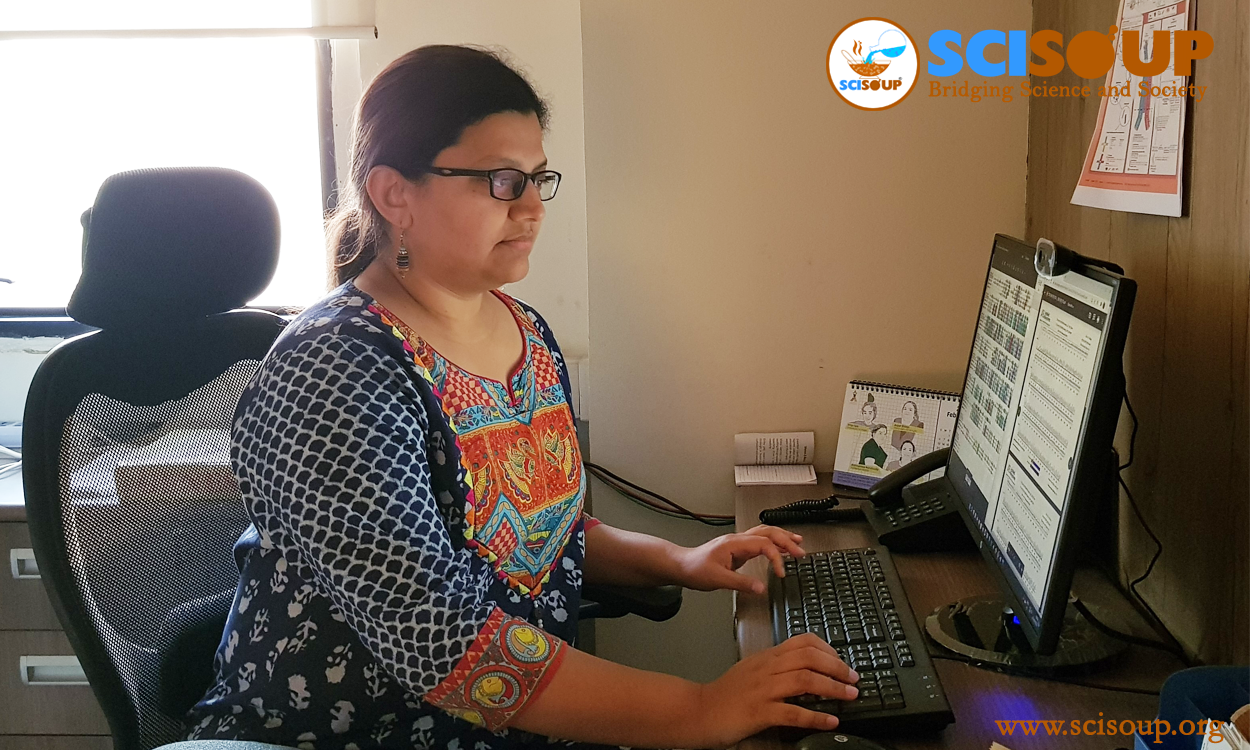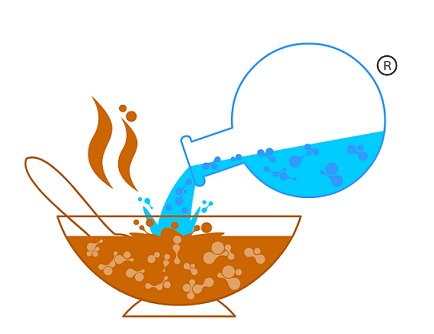
Embarking on an independent scientific journey as an academician heading an independent research group with teaching responsibilities comes with a set of unique challenges. Each person has a unique way of navigating this path. The background preparation and strategies one employs to get into an academia based position are also varied. As a part of SciSoup Blog Series, we have tried to collate a questionnaire that various young investigators and early career researchers have responded to and we hope that this brings in new perspectives, ideas and helps aspiring young researchers who are planning to take this path and embark on this exciting journey ahead.
MAR 04, 2022 | BY ROHAN J. KHADILKAR
In this third mentoring Blog post, we would be sharing with you the views and experiences of Dr. Mridula Nambiar who is an Assistant Professor at the Department of Biology, Indian Institute of Science Education and Research (IISER), Pune. She obtained her Ph.D. from Indian Institute of Science, Bangalore, India followed by a postdoctoral stint at the Fred Hutchinson Cancer Research Center, Seattle, USA.
1) How was the transition like from being a postdoctoral fellow to an independent investigator and leading a research group?
For me the transition has been definitely challenging, to say the least. After I entered the job market, it took about a year and a half for me between sending out applications and finally accepting the offer at IISER Pune. This phase was filled with anxiety about the future, frustrations with delays in application processing, disappointment at getting rejections as well as almost going through with the idea of doing another postdoc! But, it did end on a happy note and I was thrilled to be able to start my independent research career at IISER Pune. It has been quite tough setting up a new lab during the pandemic, with all the restrictions and adjustments that we all have had to make in order to navigate through these unprecedented times. However, things are slowly getting back on track now and it’s really fun and gratifying to be able to get back to research and testing out new ideas with young trainees in the lab.
2) What advice and tips you would provide to a person who is planning on transitioning to academia and is on the academic job market?
Start applying at least a year before you actually plan to move out of your postdoc lab. Try to attend young investigator meetings (YIM) to get an idea of the recruitment drives in various Indian Institutes as well as to get an opportunity to talk about one's work and to connect with fellow scientists. But in the end, everything depends on your job/chalk talks, interactions and final interviews - so prepare well. The research proposal is obviously the most critical aspect of your application package. Make sure your short and long-term goals are clear, well-defined and well-thought out. Take help from your mentors and colleagues to get feedback on your application package, especially if you know new PIs, who have gone through the rigmarole recently.
3) What are some of the specific challenges you faced while setting up your own lab and starting a new research group?
The setting up of my lab coincided with the start of the pandemic, so it has not been easy. Within two months of my joining, the country went into its first lockdown and all research activities (like everything else) came to a halt. It was a very disconcerting and surreal few months, especially since it was totally out of one's control. Moving to an online-mode of communication and interaction with my new lab trainees was particularly challenging. We had online group meetings and journal clubs to keep ourselves updated and individual meetings with my new Ph.D. students to discuss their projects and bounce off ideas that they could potentially test later. Once students were back on campus, frenzied lab setup and standardizing the basic lab protocols began and we were able to continue setting things up slowly but steadily. Although, this was not the way I had imagined how the beginning of my independent lab would be, such a unique but stressful start, has made my group and me even more motivated in our work. Apart from the science, I would say learning how to handle the administrative aspects such as ordering reagents and equipment as well as managing a grant was quite daunting. While I was aware of these difficulties, having seen it as a Ph.D. student in India, doing it on your own is a different experience in itself.
4) Which are some of the fellowships/grants that an early career researcher in India can apply for in order to kick start their career?
DBT Ramalingaswamy re-entry fellowship, DST Ramanujam fellowship, DBT-Wellcome Early career or Intermediate fellowships, DST early career research award (currently known as Startup Research Grant-SRG) and DBT Har Gobind Khorana-Innovative Young Biotechnologist Award – IYBA.
5) Your thoughts on teaching, mentorship and its role in shaping curious minds?
It is a great feeling to see that something you taught in a class or your research work, kindles an interest in young students and motivates them to find out more and expand their knowledge. Mentorship comes in many flavors and it’s mainly about using your own experience to guide a young student on a path that they find most interesting and satisfying. For me, it is humbling and a great privilege to be in a position to teach and mentor young minds.
6) If you were to share your life philosophy or “mantra” that you believe in the most that also helps you in 'sciencing', what would it be?
"It does not matter how slowly you go as long as you do not stop". I always think of this saying by Confucius during moments when I have self-doubts or when things don't go as expected. It reminds me that everyone has their own journey and paths to take, no matter how slow, as long as one keeps trying. In science too, when experiments don't work or your favorite hypothesis doesn't pan out, it is important to take a step back, look at the clues in your results, try to understand what it means and work towards it, perhaps by trying a different approach, instead of giving it up completely or holding onto it blindly.
Dr. Mridula Nambiar was interviewed by Dr. Rohan J. Khadilkar (INSA & Har Gobind Khorana - IYBA Awardee, Ramalingaswami Re-entry fellow), Tata Memorial Centre - ACTREC, Navi Mumbai, India.
Edited by - Ratneshwar Thakur and Dr. Rohan J. Khadilkar

Send your opinions, questions, and suggestions for future column topics and stories - to scisoup@gmail.com and engage with us on